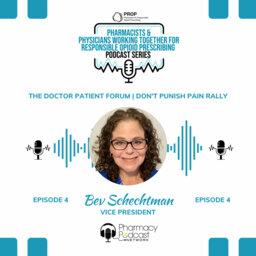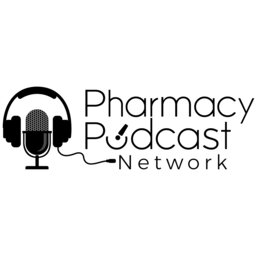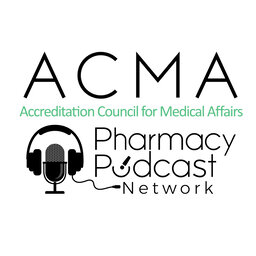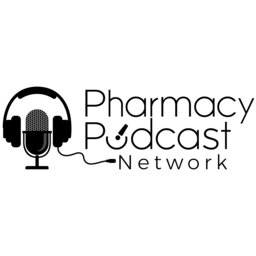The V3 Medical Affairs Podcast: Rare Disease Day 2020 - PPN Episode 952
ACMA Podcast
The ACMA is a member of the Pharmacy Podcast Network. The Accreditation Council for Medical Affairs (ACMA)Credible. Trustworthy. The ACMA is the on…Host Dr. Anne Arvizu and Guest Dan Donovan
Dan has spent nearly three decades in the pharmaceutical industry on both the industry and service sides of the business – first with Pfizer then creating Envision Pharma, which was acquired by United BioSource Corporation. Dan’s introduction to the world of rare disease began in 2011 when he was appointed to the Board of Directors and later as Chief Business Officer of Cancer Prevention Pharmaceuticals. Dan is the primary visionary behind rareLife solutions.
Dan’s experiences and observations have led him to believe that there is a better, smarter way to engage all rare disease stakeholders and accelerate disease understanding and treatment success. He believes the power of collaboration is the linchpin to this fundamental change.
In this episode, Anne opens the show defining rare disease. A rare disease is a condition that affects fewer than 200,000 people, whereas Europe defines it as something that affects less than 1 in 2,000 people. Drug companies have not been interested in developing treatments for rare diseases; there just wasn’t the incentive. The drug companies would not be able to sustain the costs involved in developing medicine.
Dan gives his take on the importance of patient centricity in rare disease drug development. Patients have to educate their physicians because they typically know more about it than their doctors do. Patients can help develop these products in a smarter way than the drug companies could do alone.
When Dan first started working in the business, patients had little input in rare disease drug development. In the past three years, it has taken off. Now there is even a role called the chief of patient relations.
Then, Dan speaks about publications for rare diseases. These publications should differ from most medical publications. These publications should have:
- Open and free access to the public.
- Include patients and advocates as authors on the papers.
The patient journey is not in typical medical literature. Dan sat with a patient who had a rare disease. They looked at the psychosocial elements of the disease and the impact on their family. This woman has to see about ten doctors a year; there are substantial cost implications on this. Eventually, they were able to share this patient’s journey in a publication.
Later, Dan talks about ensuring patient-centricity happens. Pharmaceutical is a highly regulated industry. Anything that suggests that companies are doing direct-to-patient promotion will scare them – it comes with huge fines. Historically, pharmaceutical companies take a long time to make changes.
In this Episode:
- About rare disease [ 1:50 ]
- Why patient-centricity is critical in rare disease drug development [ 14:00 ]
- Different rare disease events [ 21:10 ]
- Publications for rare diseases [ 21:50 ]
- Dan gives a patient example on publications for rare diseases [ 24:35 ]
- How to ensure patient-centricity happens [ 28:10 ]
- About rareLife solutions [ 30:35 ]
Quotables:
- “Of over 7,000 rare diseases, there are only 450 drugs that are approved.” -Dan Donovan
- “HCPs need to recognize that patients have become major experts on their rare disease.” -Anne Arvizu
- “1,200 companies are researching 1,900 rare diseases right now.” -Dan Donovan
- “How do you go looking for what you don’t know?” -Anne Arvizu
- “There is no reason patients can’t be authors on medical publications.” -Dan Donovan
Links Mentioned:
- rareLife solutions: https://rarelifesolutions.com/
- rareLife solutions on Facebook: https://www.facebook.com/rareLifeSolutions/
- Email rareLife solutions: contactus@rarelifesolutions.com
- NIH: https://www.nih.gov/
- NORD: https://rarediseases.org/
- Global Genes: https://globalgenes.org/
- Rare Disease Day 2020: https://www.rarediseaseday.org/
In 2 playlist(s)
Pharmacy Podcast Network
The Pharmacy Podcast Network is ranked as the number one podcast in healthcare dedicated to the Busi…Social links
Follow podcast
Recent clips

Where's the Patient's Voice in Evidence-based Treatment & Research? | Pharmacist and Physician Opioid Collaborative
1:00:11

Pharmacists Answering the call | Pharmacy Podcast Nation
56:55

Ja'Miera Stuart PharmD | Brighter Horizons
19:30
 Pharmacy Podcast Network
Pharmacy Podcast Network
